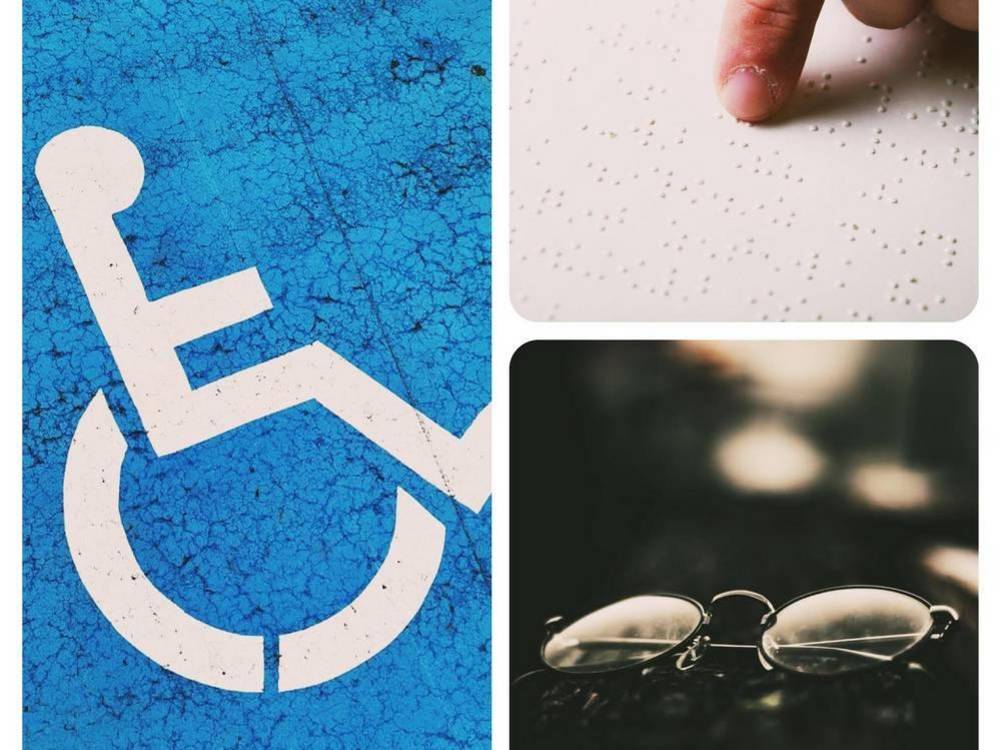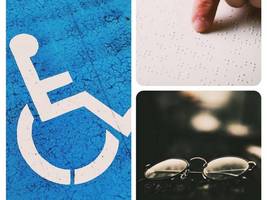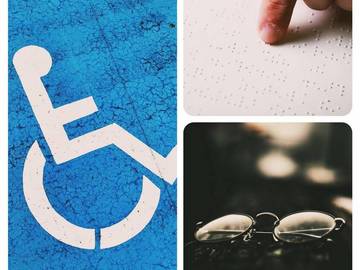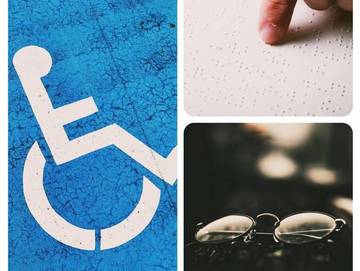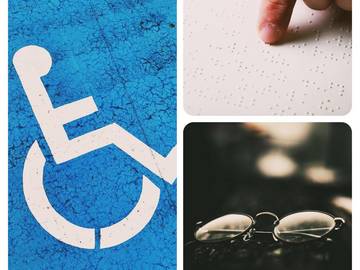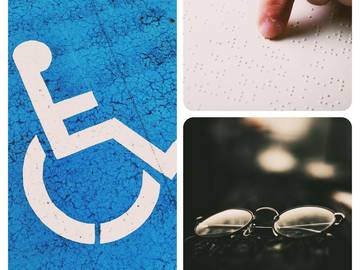Between October and December 2023, the Human Rights Ombudsman of the Republic of Slovenia (Ombudsman) discussed various complaints from people who turned to the institution regarding the provision of human rights of persons with disabilities. Complainants were helped with clarifications about their rights and the legislation, recommendations for the better realisation of rights were addressed to bodies responsible, and attention was publicly brought to the rights of persons with disabilities.
Changes to personal assistance
The Ombudsman considers that the proposal for a new Personal Assistance Act, which was presented for public hearing in September 2023, could, through some of its solutions, interfere with the rights of beneficiaries to personal assistance, which are protected by the Constitution of the Republic of Slovenia in Articles 14, 22, and 52. The Ombudsman has therefore commented on the proposal for a new law on personal assistance (OA) of the Ministry of Labour, Family, Social Affairs and Equal Opportunities (MDDSZ). In summary, the Ombudsman has, first of all, emphasised the need for the regulation of the right to OA to be included in the systemic regulation of various forms of care, assistance or nursing for all persons who urgently need the assistance of another person. Unfortunately, the Ombudsman finds this lacking in the current vision of the welfare state. It is essential to regulate the various forms of assistance available to the individual systematically and comprehensively, as this is the only way to ensure the constitutional coherence of the entire system while at the same time protecting individual rights. The MDDSZ has accepted only a part of the Ombudsman's views.
Fair identification of personal assistance needs
In the context of the consideration of a large number of complaints relating to the recognition of the right to personal assistance (OA), the Ombudsman obtained several explanations in written and oral communication from the MDDSZ and the Social Protection Institute of the Republic of Slovenia (IRSSV), which, in accordance with the provisions of the Personal Assistance Act (ZOA), performs the tasks of an expert body in the process of recognition of the right to OA. In order to clarify the whole field assessment process, the Ombudsman also witnessed a visit of the expert committee to the applicant in a specific case. In the Ombudsman's view, the provision of the right to personal assistance should first be subject to appropriate legal regulation, and then to a procedure which will respect the dignity of an individual and will conclude with a duly reasoned decision, which will make it possible to assess whether the principles of the rule of law have been respected in the procedure, including concerning questions of the comparability of the situations of persons in comparable circumstances. The MDDSZ has accepted some of the Ombudsman's views, rejected others, and has not (yet) been able to take a position on some of the views.
The challenges of diagnosing adults with autism in the public health system
The Ombudsman was contacted by an association that helps and supports adolescents and adults with autism spectrum disorders, and the association addressed difficulties in diagnosing autism in adults in the public health system. The complainants stated that the staff of the Adult Mental Health Centres (CDZOs) were not adequately trained to diagnose autism and that the CDZOs were not equipped with adequate technical support. The Ombudsman considered the complaint to be justified in terms of seeking additional systemic options for the treatment of adults with autism. The Ombudsman notes that all key stakeholders have identified the need for additional measures in the field of treatment of persons with spectrum disorders and therefore supports the proposal of the NIJZ that the NIJZ and the CDZOs, together with the complainants, explore the possibilities for additional training of professionals in the field of autism and other spectrum disorders and jointly develop a training plan. To jointly address the issue, the Ombudsman also informed the NIJZ and the Ministry of Health of his findings and recommendations for further action. (more)
When you are no longer able to live at home, the state must ensure the conditions for your survival by providing adequate services
In 2023, the Ombudsman also considered complaints from individuals whose health condition prevented them from returning home after hospital treatment, while the social security system was unable to provide vacancies. The most obvious consequence, in addition to all the others, is that in such case, an individual is subject to a health service that is much more expensive for the system and on top of that prevents the health system from being able to treat someone else who needs health care. However, after years of warnings from the Ombudsman, there has been a shift – a new ministry is now in charge of the issue. In November 2023, the Ministry for Solidarity-Based Future (MSP) explained that, to address the issue of admitting persons who, while in stable health condition, require continuous nursing care and more complex medical-technical procedures and interventions, and the consequent increase in the staffing norm in the field of nursing care, an inter-ministerial working group had been appointed on 27 October 2023 to draw up the Baselines for the establishment of nursing care units in social welfare institutions. The Ombudsman will continue to monitor the issue and will encourage that, as society expands the scope and range of different support services, we as a society not only catch up with the trend of increasing needs in society but also slowly eliminate the backlog of development that has been accumulating in the field for decades.
Integrated early intervention for preschool children with special needs
The Ombudsman was informed by the National Education Institute Slovenia (ZRSŠ) about certain issues in the field of integrated early treatment of preschool children with special needs based on the Act Regulating the Integrated Early Treatment of Preschool Children with Special Needs (ZOPOPP). The main issues highlighted were the lack of uniform criteria and guidelines for the work of multidisciplinary teams (MDTs) and early treatment centres; the lack of adequate professional staff, the incompleteness of the teams and the unequal staff coverage of the Developmental Outpatient Clinics Network with the Early Treatment Centres across Slovenia; and the absence of some of the sub-legislative acts provided for in the ZOPOPP. The Ombudsman considers that prompt response to perceived problems in the field of integrated early treatment of preschool children with special needs is essential for the adequate protection of their rights. The Ombudsman has therefore sought clarifications from the MDDSZ, the Ministry of Education (MVI), the Ministry of Health (MZ), and the Ministry for Solidarity-Based Future (MSP) in this regard. In what is admittedly a very difficult situation, the Ombudsman recognises as a positive development that all the stakeholders of the executive branch of government in the country seem to be aware of the issues and see them as comparable to those of the ZRSŠ, which is one of the preconditions for a successful resolution of the issues.
Children with special needs in music schools
In the Ombudsman's Annual Report for 2022, the Ombudsman presented certain circumstances of the inclusion of children with special needs in music schools and expressed the expectation that, when the relevant legislative changes are made, the special needs of children will be taken into account both in the admission examination process and in the education process, and that a sound assessment will be carried out and an appropriate solution will be devised which would systematically enable children with special needs, who are not able to pass the entry exams but can tremendously benefit from the advantages that taking part in musical activities can bring an individual, to be included in additional new programmes. The Ombudsman was informed by the Ministry of Education that an analysis of the state of inclusiveness in music education in terms of inclusion of pupils with special needs has already been carried out with an intent to promote inclusiveness and fair access to music schools in 2022. The study report was finalised in October 2023 and the results of the study will be followed up by further activities of the ministry.
Differences in the manner people are treated should not be based on which ministry the service provider falls under
The Ombudsman was informed by the National Education Institute Slovenia (ZRSŠ) about the issue of payment of travel expenses to a person who is enrolled in an education, work and care centre. The case has been brought to the attention of the Ministry for Solidarity-Based Future (MSP), which has formulated the position that transport costs for daily arrivals and departures should be financed for persons who are enrolled in the daycare of the training centre. Transport costs for persons who are enrolled in day-round, 24-hour daycare with the service provider (which is also the case here) are not included in the service and are consequently not funded. In the Ombudsman's view, the mere fact that one of the persons is enrolled with the service provider on a different legal basis than the other person, while all other relevant circumstances are equal, cannot justify a substantial difference in the material situation of the two persons, as this would not be in accordance with the Constitution of the Republic of Slovenia. The Ombudsman welcomes the decision of the MSP that the case will be duly resolved as soon as possible.
Unjustified exclusion of an unemployable person from a social inclusion programme
The Ombudsman was contacted by a complainant, who claimed that she had been unjustifiably excluded from a social inclusion programme at an institute that provides training, rehabilitation, and employment programmes for people with disabilities. The Ombudsman contacted the institution and based on the findings, adopted the view that the complainant had indeed been excluded from the programme unjustifiably, or rather, in an inappropriate manner. The Ombudsman believes that the institution has violated the rights of the complainant and suggests that in the future, in similar cases, the institution should act differently and warn the users in advance, in writing, of the possible consequences. The Ombudsman also informed the competent CSD and the MDDSZ as the administrators of the contract on the implementation of the social inclusion programme, of his opinion. (more)
The National Preventive Mechanism (NPM) visited several institutions providing concession-based institutional care for adults with intellectual and physical disabilities
The National Preventive Mechanism (NPM) (1) visited several institutions providing institutional care for adults with intellectual and physical disabilities on a concession basis. Between October and December 2023, the members of the NPM made regular visits to the residential unit of the Medobčinsko društvo Sožitje Ptuj association, the residential group of the Medobčinsko društvo Sožitje Maribor association, the residential group Čebelice of the Zavod Karion institute in Slovenske Konjice, the residential unit of the company Želva d.o.o in Ig, the residential unit of the Zveza Sonček association in Pragersko, and the residential groups of Sončna hiša and Mavrična hiša of the Skupnost Barka community.
Inaccessibility of the Sežana Centre for Social Work for people with disabilities
The Minister of Labour, Family, Social Affairs and Equal Opportunities, when discussing the Special Report at the 7th regular session of the National Assembly on 23 February 2023, stated that the accessibility of the CSD in Sežana “has already been regulated since 2021, when the report was prepared.” However, upon checking up on the current state, in September 2023 the Ombudsman found that the accessibility of the Sežana CSD had not been regulated and that the outlook for the future in this respect was also poor. In the following months, the Ombudsman therefore contacted the Ministry, which announced that they would interview with the Director of the CSD Južna Primorska. The Ombudsman will continue to monitor accessibility arrangements.
The time limit for public participation in the drafting of a regulation too short
A complainant drew the Ombudsman's attention to the fact that on 9 October 2023, the draft Disabled Persons Organizations Act (ZInvO) was published on the e-government website, but the time limit for public comments on the draft law was unusually short – a mere 7 days. The Ombudsman therefore approached the MDDSZ before the deadline expired, with a proposal to extend the deadline by at least 23 days. We expected a response from the MDDSZ in the shortest possible time, but there was none, and the e-government website indicated that the Ministry did not extend the deadline for public participation in the drafting of the Act and therefore did not follow the Ombudsman's proposal. The Ombudsman, therefore, concluded that by setting a time limit of only seven days (instead of at least a 30-day time limit) for the public to submit comments and observations on the draft ZInvO Act, the MDDSZ violated the minimum recommendations of the Resolution on Legislative Regulation, the principles of good governance, and interfered with the right to public participation in the management of public affairs (Article 44 of the Constitution of the Republic of Slovenia (URS)). Although the aforementioned Act was not later discussed, a new draft of the ZInvO Act was subject to public discussion from 22 November onwards. In this case, too, the time limit for public participation was set too short (by at least 16 days), and the MDDSZ's own commitment to designate a body for management and decision-making in the offence proceedings referred to in Article 34 of the ZInvO Act was not fulfilled. Given that the MDDSZ did not respond at all to the Ombudsman's proposal to extend the deadline for public participation in the preparation of the first draft of the ZInvO Act from 9 October 2023, the Ombudsman has this time also addressed the Government of the Republic of Slovenia with the criticism referred to in the preceding paragraph. However, despite the Ombudsman's urging, the latter did not respond at all to the criticism of the Ombudsman.
On paying for a service that you do not receive
A complainant drew the Ombudsman's attention to the need for a change in the issue of payment of care allowances during the absence of beneficiaries in institutional care. According to the Ombudsman, failure to ensure that the user of institutional care services is provided with the means for at least basic subsistence when absent from the institution for several days, with the absence announced in advance, may constitute an interference with the right under Article 50 of the Constitution of the Republic of Slovenia. The Ministry for Solidarity-Based Future considers that the problem cannot be resolved due to budgetary constraints. (more)
Ombudsman on the role of courts in interfering with the rights of persons with mental health problems during Mental Health Days Conference
In his opening address at the Mental Health Days Conference, which focused on court proceedings under the Mental Health Act (ZDZdr), Ombudsman Peter Svetina noted that the majority of complaints in the field of mental health received by the institution of Ombudsman are due to unresolved systemic issues, which are also related to the implementation of the ZDZdr. The Ombudsman noted staff shortages, problems in normative regulation, overcrowding, long waiting periods for admission to institutional care where necessary, but also premature institutionalisation. The Ombudsman's findings on this issue were presented by the Deputy Ombudsman Ivan Šelih and the Ombudsman's adviser Jure Markič, MSc. (more)
Ombudsman Svetina with the Vice-President of the European Parliament and the European Commissioner for Equality on current issues in the field of human rights of persons with disabilities
On 15 November 2023, Ombudsman Peter Svetina met with the Vice-President of the European Parliament Marco Angel and the European Commissioner for Equality, Helena Dalli, who were invited to Slovenia and accompanied by MEP Dr Milan Brglez. During the meeting, the Ombudsman presented the work and activities of the Ombudsman and the main challenges in the field of human rights protection, with a particular focus on equality. The Ombudsman also presented the main highlights of the Special Report on Accessibility of Centres for Social Work for People with Movement and Sensory Impairments and welcomed the efforts of the Ministry of Justice to remove architectural barriers in courts, in line with the Equalisation of Opportunities for Persons with Disabilities Act. He also expressed the hope that the courts will take into account his recommendation, made in 2022, to take specific measures to ensure the accessibility of the courts' websites and mobile applications to facilitate access to information for all users and persons with disabilities in particular. (more)
The Ombudsman's institution participates in the United Nations Committee against Torture
On behalf of the Ombudsman, Deputy Ombudsmen Ivan Šelih and Miha Horvat attended the 78th session of the Committee Against Torture, established under the United Nations Convention against Torture and Other Cruel, Inhuman or Degrading Treatment or Punishment, in Geneva on 14 November 2023. At the meeting, the Committee discussed the fourth periodic report of the Republic of Slovenia on the implementation of the Convention, submitted by the Republic of Slovenia. Among other things, the deputies drew attention to the overcrowding of social welfare institutions, the use of special protection measures in psychiatric hospitals, and the need to adopt appropriate solutions for the placement of individuals who need to be detained in a secure ward of a social welfare institution. They also drew attention to the problem of the appropriate legal basis for restricting the personal liberty of users in CUDVs and VDCs in Slovenia. (more)
Ombudsman at international meeting on the impact of artificial intelligence on human rights
On 30 November and 1 December 2023, Ljubljana hosted the European Network of National Human Rights Institutions’ (ENNHRI) international event on the impact of artificial intelligence on human rights, titled “Co-Lab: AI - ENNHRI Capacity Building Event on Artificial Intelligence”. The event brought together a wide range of representatives of European national human rights institutions from more than 30 countries and other international experts to share insights and experiences and to discuss how we can work (together) towards a future in which AI not only accelerates technological progress but also preserves and enhances fundamental rights. At the event, Jerneja Turin, Advisor to the Ombudsman Centre for Human Rights and Chair of the ENNHRI Working Group on the Rights of Persons with Disabilities, presented some of the opportunities and challenges that AI, automated decision-making and machine-learning technologies present in terms of rights of persons with disabilities. (more)
Ombudsman's representative at a conference on human rights and autonomy in mental health care
In November, the Ombudsman's Adviser Jerneja Turin participated at the symposium and conference “Human Rights and autonomy in mental healthcare”, organised by the Council of Europe, the Ombudsman of Latvia, and the Latvian University of Riga. During the symposium, she moderated a panel of experts on human rights and autonomy in mental health, and at the conference, she presented the role of national human rights institutions in the implementation of mental health autonomy. (more)
The Centre for Human Rights organises an international webinar on monitoring compliance of EU funding with the Convention on the Rights of Persons with Disabilities
The seminar aimed to increase knowledge and share experiences of European human rights institutions and European institutions for the protection against discrimination on their role in monitoring and contributing to the compliance of the use of EU funds with the UN Convention on the Rights of Persons with Disabilities. In addition to representatives of these institutions, the EU Agency for Fundamental Rights also participated in the seminar with a presentation of its report.
On the occasion of the 20th anniversary of the Korak Centre, the Ombudsman pays tribute to the Centre’s expert work
On the occasion of the 20th anniversary of the Korak Centre, the Ombudsman Peter Svetina, as the keynote speaker, emphasised the extraordinary importance of the work carried out at the Centre, where they give people with acquired brain injury and their relatives back their lives, which have been fatally affected by accidents. (more)
Ombudsman congratulates Društvo Mozaik on its 20th anniversary
Human Rights Ombudsman Peter Svetina attended a celebration marking the 20th anniversary of Društvo Mozaik, which promotes the inclusion of vulnerable social groups. At the event, the Ombudsman emphasised that Društvo Mozaik is an example of good practice that has been striving for twenty years to connect and realise the needs of vulnerable social groups. He believes that without civil society, this part of Slovenia would not have seen such progress. (more)
Ombudsman congratulates those deserving upon the 70th anniversary of the Dornava Institute for Education, Work and Care
Human Rights Ombudsman Peter Svetina addressed the participants of the celebration upon the 70th anniversary of the Institute for Education, Work and Care dr. Marijan Borštnar Dornava, of which he is honorary patron. He emphasised the urgency of deinstitutionalisation which enables the tenants to have control over their own lives, which is patronisingly denied to them by many, and described ZUDV Dornava as an example of good practice in establishing new living units and developing living groups or life in integrated apartments. (more)
International White Cane Safety Day
Upon the White Cane Safety Day, Ombudsman Peter Svetina stressed that blind and partially sighted persons must have equal opportunities and conditions for a dignified life, and a quality and full integration into society. He noted that, unfortunately, we still cannot be satisfied with the accessibility of public facilities for people with sensory impairments and called for other appropriate adaptations for blind and partially sighted persons. The Ombudsman draws attention to the inadequacy of teaching materials and various knowledge competitions for blind and partially sighted children, which leads to unequal treatment of these children. The Ombudsman therefore expects the competent authorities to adopt concrete solutions and to provide financial resources to eliminate discrimination against blind and partially sighted children and other persons with disabilities. (more)
The Ombudsman on International Day of Persons with Disabilities
The Ombudsman stands firm in his belief that for the more effective handling of the disability issue and greater inclusion of people with disabilities in the society, it is essential to strengthen the collaboration between individual ministries, government institutions, and disability and other organisations dealing with the issue of disability. The Ombudsman is convinced that, in order to regulate disability issues more effectively and to increase the inclusion of persons with disabilities in society, it is essential to strengthen cooperation between line ministries, government institutions, and other organisations working on disability issues. The state has set itself certain objectives in its 2030 Action Plan, to which the Ombudsman persistently brings attention, such as deinstitutionalisation, the formation of frameworks for the elimination of obstacles for the full participation of people with disabilities, and measures against their discrimination. But the Ombudsman warns that the implementation of the rights of persons with disabilities is a wound we are healing much too slowly. (more)
On International Day of Persons with Disabilities, including the impact of artificial intelligence on the rights of persons with disabilities
On the occasion of the International Day of Persons with Disabilities, the Ombudsman's Adviser Jerneja Turin, who chairs the Working Group on the Rights of Persons with Disabilities of the European Network of National Human Rights Institutions (ENNHRI), prepared an article for the ENNHRI website, entitled “Artificial intelligence and its impact on the human rights of persons with disabilities”, in which she outlined some of the opportunities and challenges that artificial intelligence, automated decision-making and machine-learning technologies present for the rights of persons with disabilities.
Previous overviews of the Ombudsman’s activities in the field of rights of persons with disabilities (a click on the indents below will take you to where they are published):
- October–December 2022
[1] The task of the National Preventive Mechanism (which was established within the institution of the Human Rights Ombudsman based on the provision of the Optional Protocol to the Convention against Torture and other Cruel, Inhuman or Degrading Treatment or Punishment) is to visit places of deprivation of liberty in the country and to check the treatment of people deprived of liberty with the purpose to strengthen their protection from torture and other forms of cruel, inhuman or degrading treatment or punishment.
